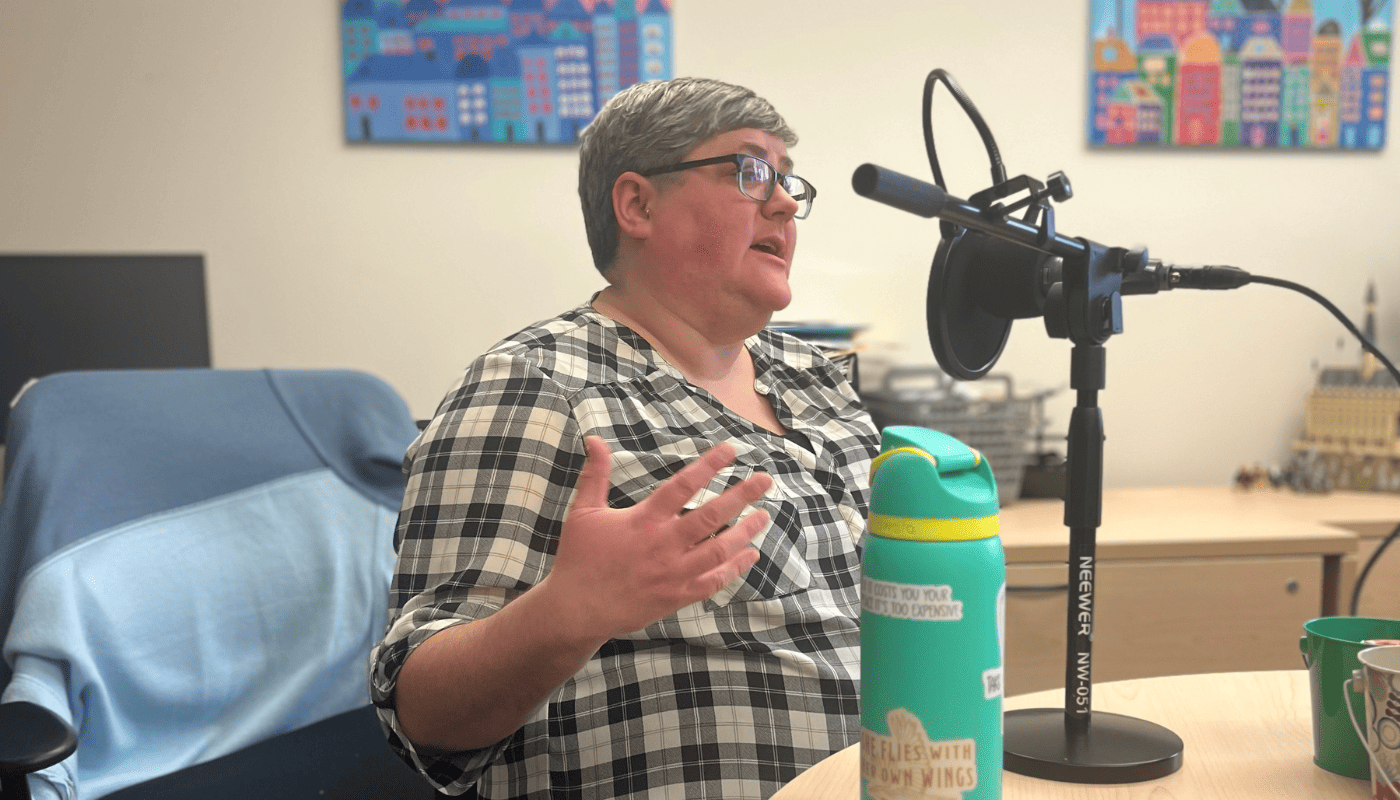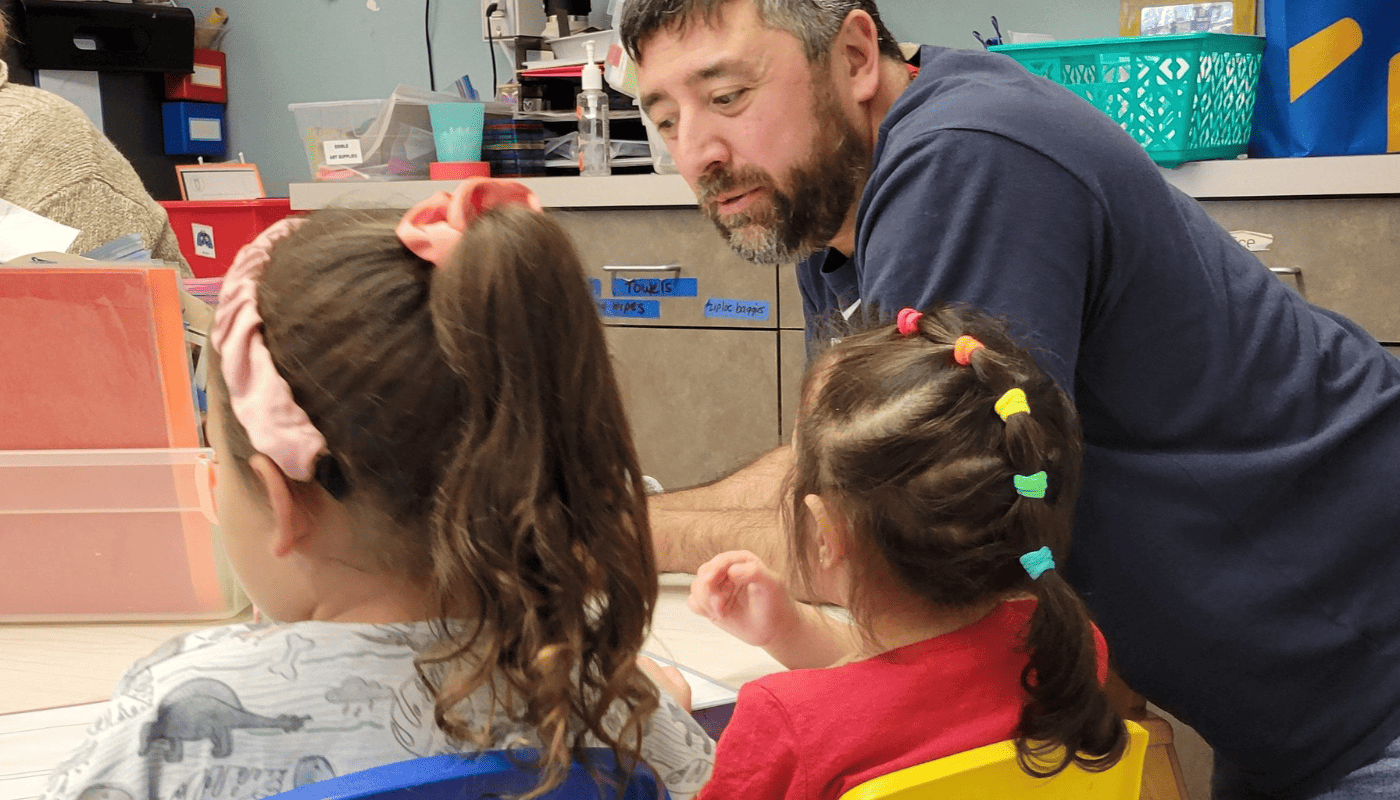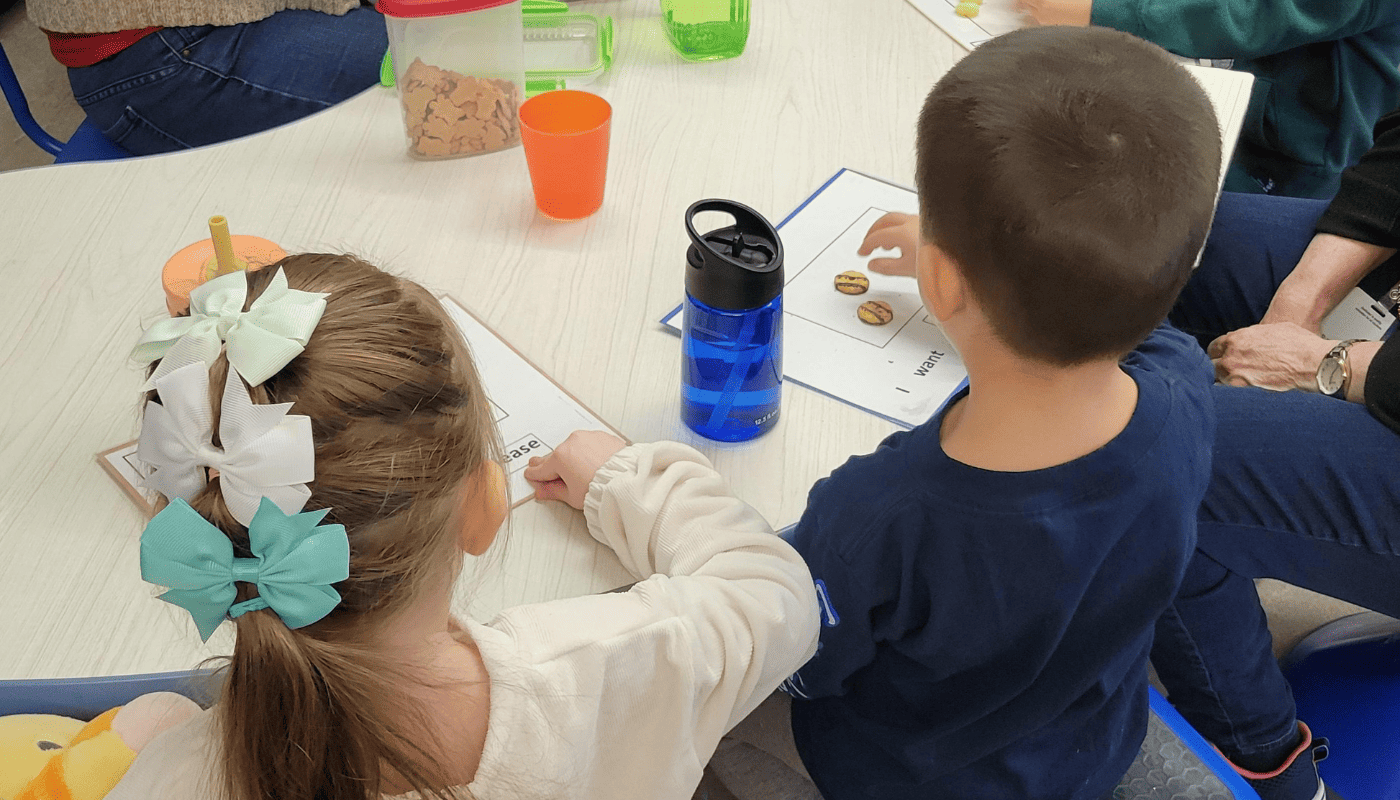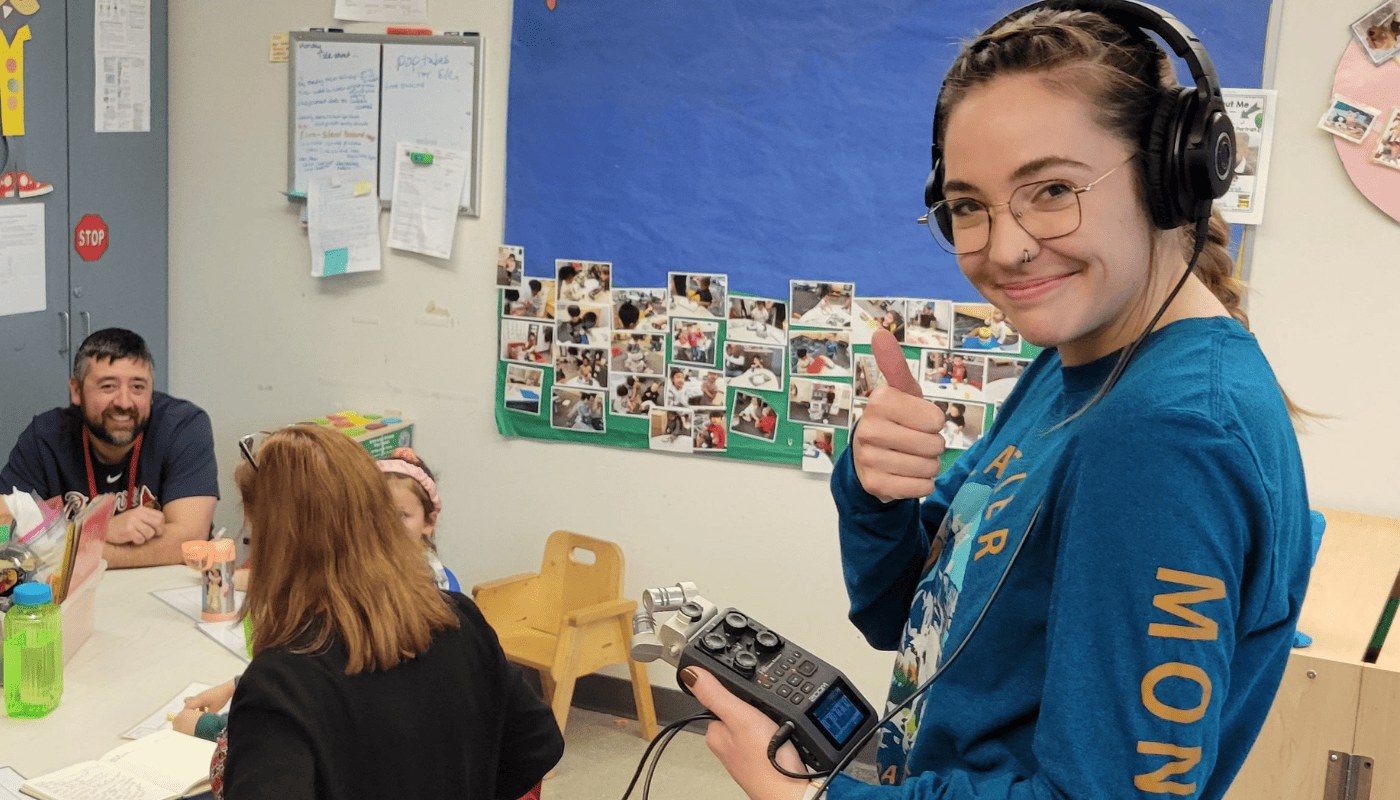
This week, the CI communications team visited the Hillsboro Early Childhood Center in Hillsboro, Oregon. The goal? To meet with Liane Chappell, principal and former instructor in the Early Intervention and Early Childhood Special Education program located at the Northwest Regional Education Service District (NWRESD).
We arrived on a bustling Tuesday morning as educators and students emerged from classrooms, the children holding star-shaped links of a guiding rope as educators gently led them to their next learning station. Handmade art covered the walls, and the evidence of Valentine’s Day crafts and treats filled the air.
Liane greeted us warmly in the main hall, leading us back to a playfully decorated office complete with a giant Harry Potter themed Lego set, and a collection of crocheted succulents. As we settled in and set up our recording equipment, we got to know our guest. Liane Chappel has been in the early childhood field for a long time, and her passion for teaching and caring for young children came through immediately.

Chappell shared that the center’s goal is to serve kids who have delays and disabilities, and to help them make progress in the areas where they need support.
“We’re looking to serve every kid in an inclusive, natural environment. Natural meaning, wherever that kid would usually be, that’s where we serve them—at home, in the classroom, or even on an errand with their family,” said Chappell.
Often, the Early Childhood Center is a family’s first exposure to special education. Chappel also explained that, not only does the center collaborate with children, but it also works with caregivers and families to help them advocate for themselves and create the best outcomes possible during the earliest years of a child’s life.

“When we’re working with parents and caregivers, we’re helping them develop as advocates for their kids,” she said. “Helping families develop the skills to advocate for their child as they go on in their special education journey is really valuable. And at the same time, the preschool teachers and child care providers we work with are getting the opportunity to learn skills that will benefit many other kids down the road.”
A lot of people realize that the school experience for kids comprises an important part of their healthy development. But not everyone knows how early this impact starts. As we talked with Liane about what brought her to this field, she shared more about the potential in young children and the value of early intervention.
“EI/ECSE has been an overlooked field for a long time,” Chappell said. “But research keeps showing the importance of starting at a younger age and how it can positively impact children for the rest of their lives.”
She continues, sharing that she’s always had a passion for inclusion – because kids with learning challenges or different abilities should be part of their communities like every other kid. “I’m working to see every kid be included and get the opportunities they deserve.”

After our conversation, we toured one of NWRESD’s inclusive classrooms, where children of all abilities come together to learn. Beautiful, kid-made art, stations for practicing different developmental skills, and opportunities for curiosity to flourish filled the room.
It was snack time, and the kids made joyful comments about the crackers and veggie straws on their plates. The instructors were smiling, asking questions, and handling the variety of emotions expressed with grace. It was a happy, safe space, and our team left the center smiling – both from being around the kids and from seeing these dedicated teachers soar.
We think you’ll want to hear the rest of Liane’s story. You can find it in our latest podcast: Inclusive Early Education for All Children on Spotify, Stitcher, Soundcloud, or wherever you get your podcasts.
As the 2024 legislative session continues, we want to emphasize the importance of Early Intervention and Early Childhood Special Education opportunities for children across Oregon. EI/ECSE services are effective at increasing school readiness, reducing K-12 special education costs, and supporting families to foster life-long success.
In 2022-23, over 15,000 children received EI/ECSE services. This represents 2-3% of infants and toddlers and 6-7% of preschool-age children in the state. But here’s the deal: EI/ ECSE programs need a minimum of $22M during the 2024 Legislative Session to maintain the current service level (CSL) for children ages 0-5 years with disabilities.
